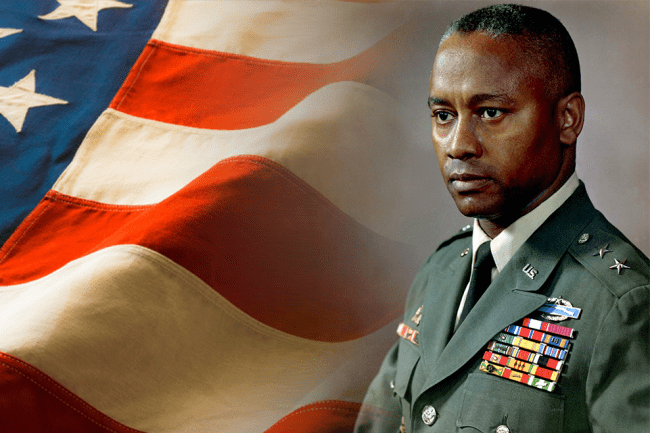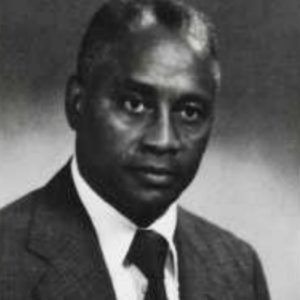
For decades, Black Americans fought in the U.S. military to bring liberty to people around the world, even though those rights were often denied to them at home. Nevertheless, these heroes have sacrificed their safety and devoted their lives to protecting the promise of America— that the country will one day truly facilitate “liberty and justice for all.” Among these extraordinary patriots is Major General Frederic Ellis Davison, Howard University Classes of 1938 and 1940, who was the first Black person to achieve the Army’s highest permanent peacetime rank and the first Black person to command an Army division.
A Bison Leads the Buffaloes
Former Howard University football coach Dr. W. E. Morrison sought a name for Howard’s sports teams that was unique and meaningful and came up with “Bison” in honor of the Black soldiers who fought in America’s early wars. Native Americans admired their fierce fighting style and likened it to the dominance of the American bison, often incorrectly called buffalo, giving rise to the term “Buffalo Soldiers” to describe legendary regimens of Black troops who fought on numerous fronts from the 1860s through the Korean War.
Buffalo, which live in Africa and South Asia, are not native to America and are often confused with bison, which have historically lorded over the American plains. Because of their similar look and derivation from the same biological family of Bovidae, the names “bison” and “buffalo” are often used interchangeably, though bison is the technically correct name of the horned, hairy bovid to which the Native Americans likened the Black soldiers. Howard’s sports teams use the correct term of “Bison” instead of “Buffaloes,” to pay homage to the power, skill, and relentlessness of these indispensable U.S. servicemen.
Because of Howard’s respect for the Buffalo Soldiers, it seems almost predestined that the university would one day send one of its sons to lead them. That’s exactly what was set in motion when Davison was commissioned as an Army 2nd lieutenant through Howard’s ROTC program. Davison graduated from Howard with his bachelor’s degree in 1938 and his graduate degree in zoology in 1940. He was called to active duty in 1941 during World War II and initially served as a platoon leader in the all-Black 92nd Infantry Division, which had inherited the name and legacy of the Buffalo Soldiers. It was the only Black military division to see combat in Europe during World War II. Davison rose through the ranks to command companies in the division’s 366th and 371st regiments. In the 366th, Davison served with fellow Howard alumnus Edward Brooke, who would go on to become the first Black person elected to the United States Senate under American universal suffrage. Both units served during the liberation of Italy from Axis forces.
After World War II, Davison was given command of a company in the division’s 365th Infantry Regiment and then served in West Germany as executive officer of the 370th Armored Infantry Battalion. He was among the first two Blacks to graduate from the Army War College, which educates senior military and civilian leaders in global national security strategy.
Making History by Protecting Freedom
Davison commanded the 199th Light Infantry Brigade during the Vietnam War’s Tet Offensive, a major escalation of the war in which Viet Cong and North Vietnamese enemy forces attacked U.S. and South Vietnamese command centers in over 100 Vietnamese cities. The 199th defended the U.S. II Field Force at Long Binh, Vietnam, one of the largest Army command headquarters in history, and went after the Viet Cong forces in Saigon, including house to house fighting. They were nicknamed the “Red Catchers,” for their work to fight communist enemy troops, known for their red flags. For its extraordinary heroism, the 199th received a Valorous Unit Award for extraordinary heroism and a Vietnamese Cross of Gallantry from the South Vietnam government.
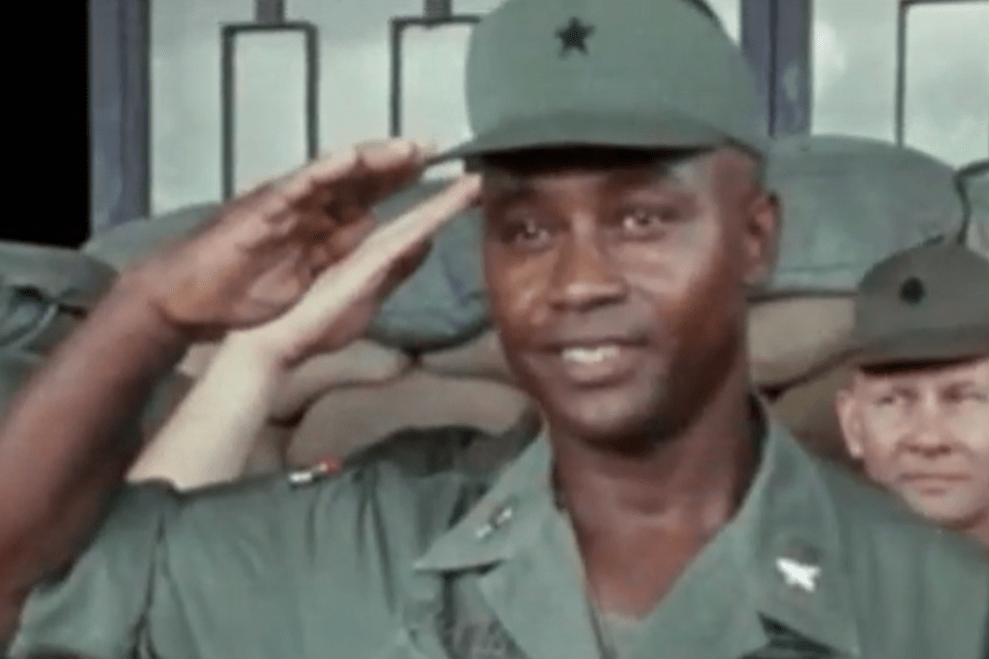
Based on that service, Davison was promoted to brigadier general in September 1968, only the third Black person to reach that rank. (The first Black brigadier general was Benjamin O. Davis, who also attended Howard.) Davison was also the first Black person to command white soldiers in combat. The promotion was covered on ABC News, which interviewed Davison and questioned him about racial progress in America. In a reflection of Howard’s motto of truth and service, Davison took a pragmatic yet hopeful view of opportunity for Blacks in the United States.
“We have, I believe, the finest society that has come into being in the history of man,” Davison said. “However, we have human beings that are operating that society. They’re good, they’re bad, they’re indifferent. Consequently, in various situations, there are occasions, many occasions, where people are discriminated against, where there are not equal opportunities. However, bear in mind that any society must eventually evolve from poor to good to the finest. I think we have reached a pretty high state in the United States.”
“I believe that opportunity is there,” he continued. “It’s not entirely equal as yet. It is equalizing as we go along. Until such time as it is completely equalized, it means that the individual Negro might have to do more than his fair share to get the acknowledgment he needs and the acknowledgement that he deserves. On the other hand, I think he must meet this challenge, and it is in fact a challenge that must be met if he is to succeed. My only word is, if the individual digs in hard enough, demonstrates sufficiently high enough his potential and his capability, he can’t be denied.”
“It’s hard, yes,” he concluded. “It may be unfair in places, true. But on the other hand, it’s a fact of life. It’s a question of whether we meet it or we don’t. I believe in meeting the problem head on and beating it.”
Returning Home
In 1971, he was promoted to major general, the first Black person to achieve this rank, which is the highest peacetime permanent rank in the U.S. Army and denoted by a two-star insignia. He was then given command of the 8th Infantry Division, becoming the first Black division commander and later became commander of the Washington Military District. The Washington Military District leaders are instrumental in planning the defense of the nation’s capital. In addition, the Washington Military District is responsible for all ceremonial duties at Arlington National Cemetery and other occasions in Washington, DC. Its units include the Army's official escort to the president and the worldwide air transport service for senior military officials.
For his service, bravery, and sacrifice, Gen. Davison military was awarded the Distinguished Service Medal twice, along with the Legion of Merit, the Distinguished Flying Cross, the Bronze Star, the Air Medal with 19 oak leaf clusters, the Army Commendation Medal and the Combat Infantry Badge.
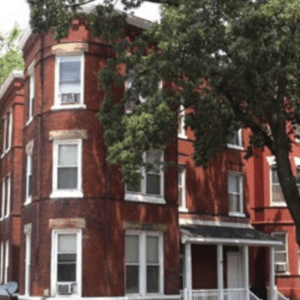
After he retired from the Army, he returned to Howard and served as executive assistant to Howard University President James Cheek from 1974 to 1985. He was active in promoting housing assistance in the District of Columbia. The General Frederic Davison House on New York Avenue was named in his honor and designed to house men recovering from various disorders who work and are engaged in rehabilitation activities.
America’s veterans have protected democracy around the world, keeping America safe and enabling the nation to keep working to create a more perfect union. We all owe a debt of gratitude to the men and women who have served in our Armed Forces, from every walk of life, who have sacrificed their own safety to protect the nation. That sacrifice is all the more pronounced for the military members who have had to fight for liberty at home and abroad.
Keep Reading
-
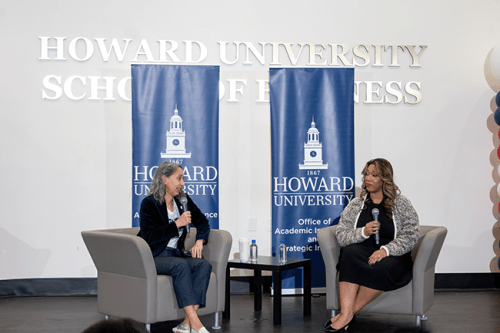 News
NewsHU-MasterCard Inclusive Growth Thought Leadership Lecture Series Kicks Off Howard’s 2026 Data Week
Feb 20, 2026 5 minutes -

-
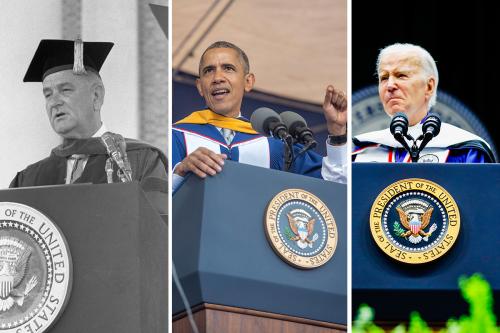
Find More Stories Like This
Are You a Member of the Media?
Our public relations team can connect you with faculty experts and answer questions about Howard University news and events.
Submit a Media Inquiry

